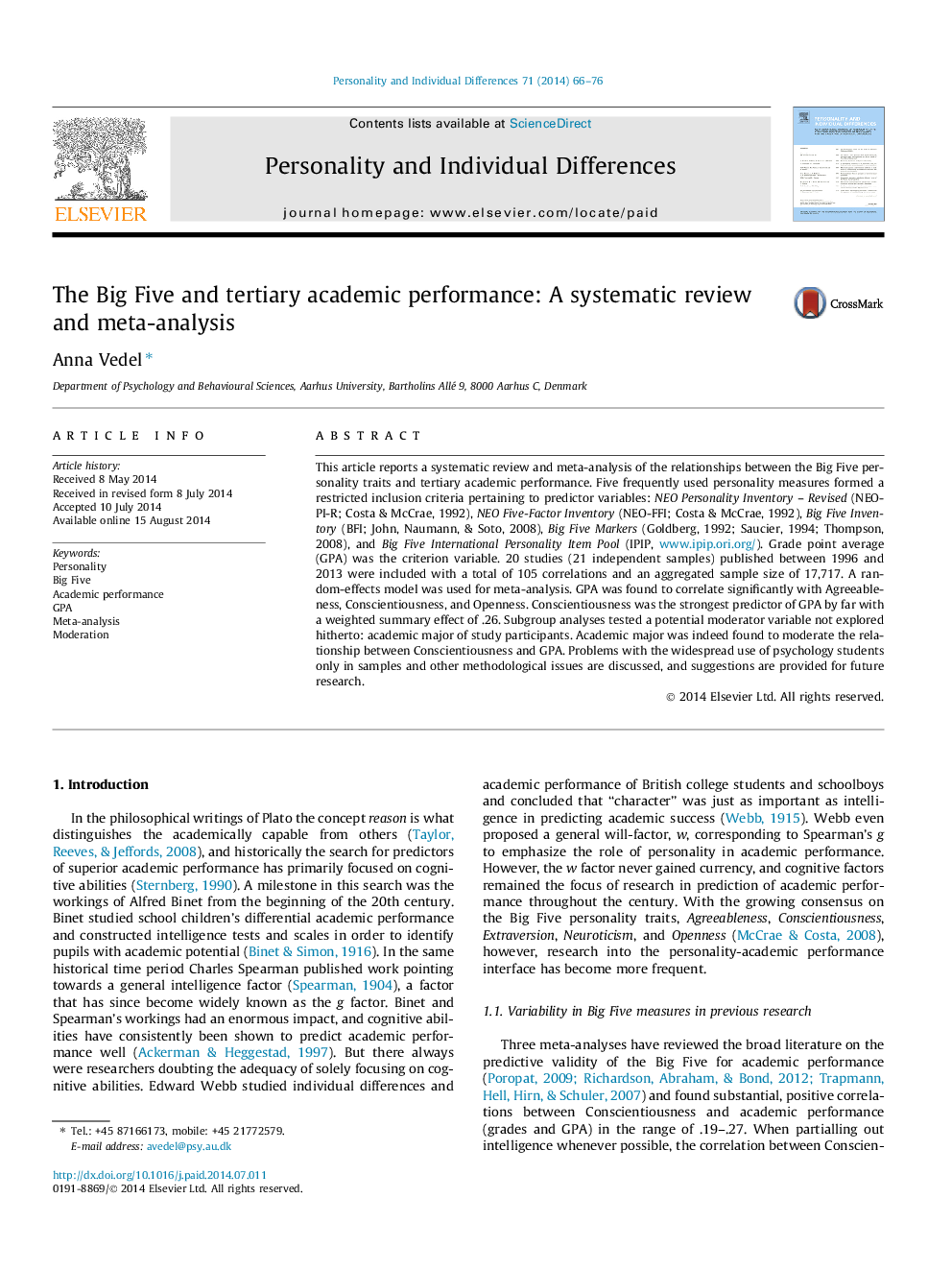| Article ID | Journal | Published Year | Pages | File Type |
|---|---|---|---|---|
| 890367 | Personality and Individual Differences | 2014 | 11 Pages |
•A meta-analysis of the association between the Big Five and GPA was performed.•Conscientiousness was found to be a robust predictor of GPA; r = .26.•Academic major significantly moderated the Conscientiousness–GPA relationship.
This article reports a systematic review and meta-analysis of the relationships between the Big Five personality traits and tertiary academic performance. Five frequently used personality measures formed a restricted inclusion criteria pertaining to predictor variables: NEO Personality Inventory – Revised (NEO-PI-R; Costa & McCrae, 1992), NEO Five-Factor Inventory (NEO-FFI; Costa & McCrae, 1992), Big Five Inventory (BFI; John, Naumann, & Soto, 2008), Big Five Markers (Goldberg, 1992; Saucier, 1994; Thompson, 2008), and Big Five International Personality Item Pool (IPIP, www.ipip.ori.org/). Grade point average (GPA) was the criterion variable. 20 studies (21 independent samples) published between 1996 and 2013 were included with a total of 105 correlations and an aggregated sample size of 17,717. A random-effects model was used for meta-analysis. GPA was found to correlate significantly with Agreeableness, Conscientiousness, and Openness. Conscientiousness was the strongest predictor of GPA by far with a weighted summary effect of .26. Subgroup analyses tested a potential moderator variable not explored hitherto: academic major of study participants. Academic major was indeed found to moderate the relationship between Conscientiousness and GPA. Problems with the widespread use of psychology students only in samples and other methodological issues are discussed, and suggestions are provided for future research.
